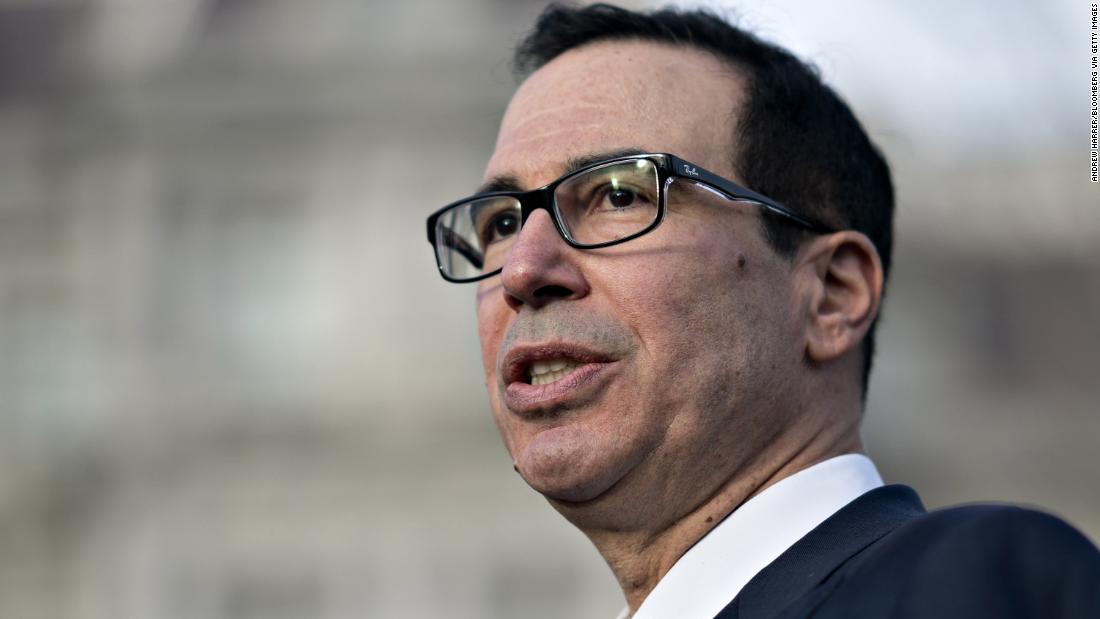
"The problem with his comments [is] he's either incredibly out of touch, or he knows a problem nobody else knows," said Dennis Kelleher, CEO of financial reform group Better Markets.
The stock market looked to recover a bit on Wednesday. But Mnuchin's comments raised a new anxiety: Should people be worried about the soundness of US banks?
Public evidence suggests the banks are not in crisis.
The Federal Reserve conducts annual stress tests of how the biggest banks would hold up under various hypothetical scenarios, such as if unemployment skyrocketed or housing prices plummeted.
In a report in June, the Fed concluded that American banks are in good condition and strong enough to withstand the next economic downturn. And regulations enacted after the 2008 financial crisis mandate that banks maintain certain levels of liquid assets, which can be easily converted to cash to pay off obligations in a crunch.
Mnuchin's remarks on Sunday that banks have "ample liquidity" were met with confusion and surprise, triggering a wild day of trading just before the Christmas holiday. The Dow and the S&P 500 each fell by nearly 3% — their biggest Christmas Eve declines in history.
Mnuchin said in an unusual statement that he'd called the CEOs of JPMorgan Chase (JPM), Wells Fargo (WFC), Bank of America (BAC), Citi (C), Goldman Sachs (GS) and Morgan Stanley (MS) over the weekend. According to the Treasury secretary, they all confirmed that their banks have sufficient liquidity to lend to consumers, businesses and perform other market operations.
Bank stocks took a beating this year. Even as quarterly profits soared, JPMorgan's stock has dropped about 15% in 2018, while Goldman Sachs, which is very exposed to capital markets and is struggling with fallout from the global 1MDB scandal, has fallen nearly 39%.
Kelleher said the lagging performance is tied to broader fears about the state of the economy. President Donald Trump's trade wars and the shrinking difference between short- and long-term bond yields have caused some to worry about the pace of economic growth in 2019 and beyond.
If the economy stumbles and businesses borrow less, that hurts bank profits. And if there's ultimately a recession, some customers won't be able to pay back loans, making the situation worse.
But stock prices and liquidity are different. Liquidity and capital, which banks need as a cushion to absorb losses, haven't been prominent concerns. That's because regulators have gone to great lengths since 2008 to ensure banks would be on solid footing in the event of another downturn.
Since the financial crisis, liquid assets in the banking system have increased by more than $3 trillion, according to a November report from the Federal Reserve Board of Governors.
"Large banks in particular hold substantial amounts of liquid assets, far exceeding pre-crisis levels and well above regulatory requirements," the report said.
The Federal Reserve, after its June assessment, reported that 35 major financial institutions, including Bank of America, JPMorgan and Citi, had maintained capital levels above the minimum that the Fed requires for the third year in a row.
Liquidity and capital levels could become an issue for some banks down the line, because the Trump administration is considering the rollback or revision of some regulations.
But those changes wouldn't affect the six financial institutions that Mnuchin spoke with Sunday. The proposal the Fed has been working on would relax liquidity requirements for small or midsize firms.
There are "legitimate concerns about the trend of liquidity and capital in the banking sector," Kelleher said. "However, I just don't think it's part of what we're seeing in the markets today."
He continued: "Secretary Mnuchin commenting on it frankly blindsided everybody."
No comments:
Post a Comment